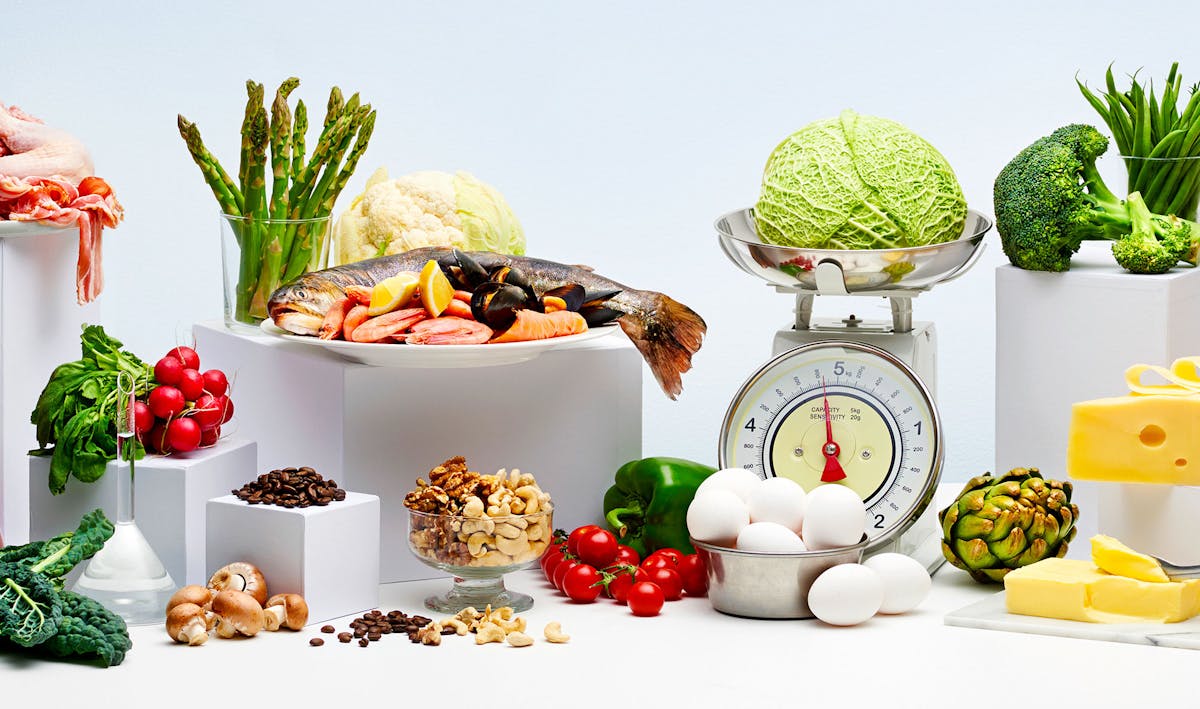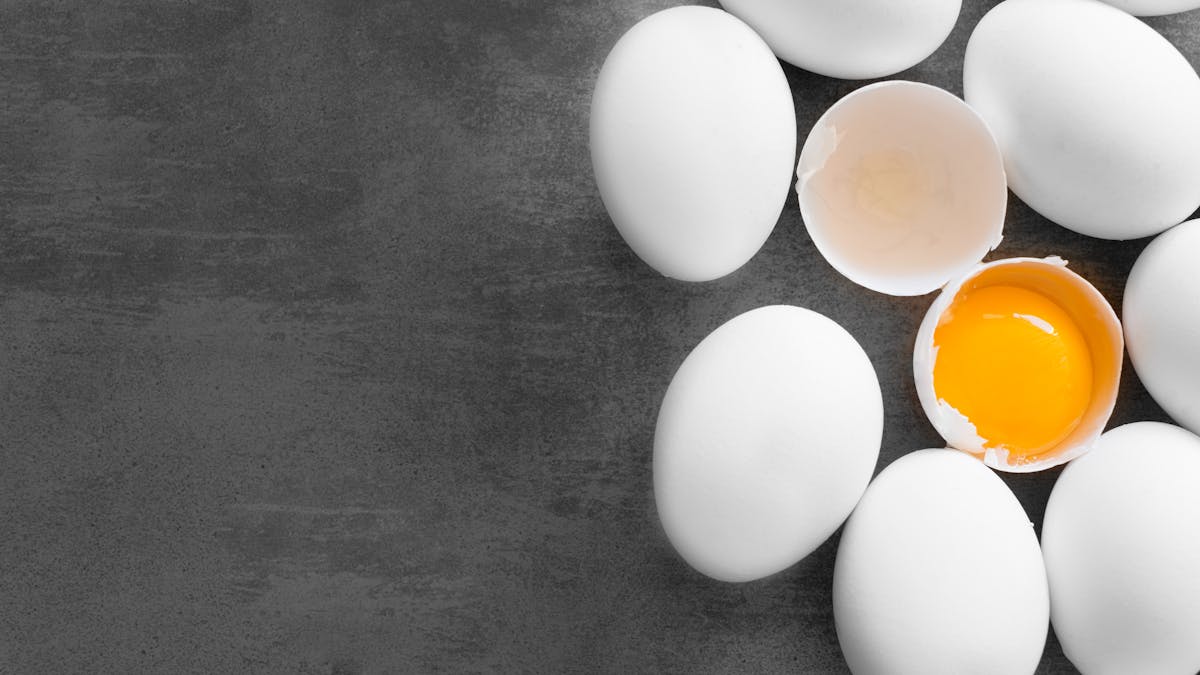How to manage hunger
when trying to
lose weight
What is hunger?
It’s one of our most primal instincts and something we experience multiple times a day. But what is hunger, exactly?
Hunger causes you to seek energy (calories) that your body needs to move, breathe, and perform hundreds of other vital functions. Sometimes it may cause your stomach to rumble or create other sensations that alert you that it’s time to eat.
In modern-day society, it’s common to become hungry about 4 to 5 hours after eating a meal. However, it might happen as soon as a couple of hours or more than 12 hours afterward.
Factors that affect how hungry you become after eating — and how soon it happens — include:
- How many calories you ate1
- The macronutrient mix (ratio of protein, carbs, and fat) of your meal2
- Your body’s metabolic response3
Is it hunger or appetite?
There’s a subtle difference between hunger and appetite. Appetite is a desire to eat, which is often increased by seeing or smelling delicious foods. By contrast, hunger tells your body that it needs food now, from any source that can provide it with energy.
When your stomach is empty, it triggers cells in your digestive tract to release ghrelin. Known as the “hunger hormone,” ghrelin signals your brain to rev up production of stomach acid, priming your body to receive and digest food. Once you’ve eaten, the ghrelin-releasing cells receive a message from your full stomach to stop producing ghrelin, and you no longer feel hungry.4
Unfortunately, this system doesn’t always function the way it should. The most extreme example of this is Prader-Willi syndrome. Children with this condition are obese, yet driven to eat constantly due to chronically elevated levels of ghrelin, which keep them hungry.5
Ghrelin and opposing “fullness” hormones like GLP-1, PYY and CCK may have played important roles in our evolutionary past. Hunger prompted our hunter-gatherer ancestors to seek food for fuel and nourishment. And since eating is necessary for survival, we seem to have evolved to find it pleasurable as well. So hunger and appetite are intrinsically linked.
There are different levels of hunger, of course. When you haven’t eaten for several hours, you might have a few vague, mildly uncomfortable hunger pangs. If you don’t eat right away because you’re focused on work or another project, hunger may go away temporarily.
On the other hand, going without food for a long time may cause a painful, gnawing feeling in your stomach, along with headaches, dizziness, or other symptoms. Still, certain individuals seem to be able to go much longer than others without getting hungry.6
Or, watch a summary of this guide where you’ll learn how to keep hunger at bay so you can achieve weight loss success.
Other reasons you may want to eat
Being hungry isn’t the only thing that makes us want to eat, though. When trying to lose weight, confirming that what you’re feeling is truly hunger before you start eating is key.
There are a number of things that can seem like hunger, but aren’t. These include:
- Eating due to stress: Feeling anxious and in need of a “nervous nibble?” We all tend to eat in response to stress from time to time. However, snacking to calm nerves seems to be especially common in people who struggle with their weight.7
- Eating to relieve sadness or loneliness: Similarly, when you’re sad or lonely, you may reach for food to relieve these feelings. This is sometimes called “comfort eating” or “emotional eating.” If you’re an emotional eater, the drive to consume food can be so strong that it may feel like true hunger.8
- Eating out of boredom: Feeling bored might prompt you to head to the kitchen and peek in the refrigerator or pantry for inspiration. Although this may momentarily distract you from boredom, it can lead to eating when you aren’t actually hungry.9
- Eating out of habit: Sometimes it’s hard to tell if you’re eating according to your routine or in response to genuine hunger. Humans are typically creatures of habit. You may get used to eating certain foods at specific times without actually considering your hunger and appetite.10
- Eating in response to external cues: Finally, the appearance of food may lead you to mistake a desire to eat for hunger. Walking past a restaurant with tantalizing sights and aromas, seeing a table of mouth-watering appetizers at a party, and other external cues may persuade you to eat because you start thinking you’re hungry — even if you’ve recently eaten.11
What to eat to lower hunger
Intentionally restricting calories to lose weight tends to be counterproductive because it often leads to feelings of hunger and deprivation. This may be one of the main reasons low calorie diets typically fail to produce lasting weight loss.12
Fortunately, there’s a much more sustainable, pleasurable, appetite-suppressing way to lose weight. Adopt a low carb lifestyle.
Keep carbs very low
One of the first things you’ll likely notice soon after cutting carbs is that you’re just not very hungry anymore. This may be partly due to having higher blood levels of ketones, the energy compounds made from fat in your liver. When carb intake is very low, your liver ramps up ketone production, creating a state of maximum fat burning called ketosis.
Research has repeatedly confirmed that being in ketosis can be a powerful appetite suppressant during and after weight loss.13
In fact, several studies have shown that when people dramatically cut back on carbs but are allowed as much protein and fat as they want, they end up automatically eating less because they’re no longer as hungry.14 Although the precise mechanism isn’t entirely understood, higher ketone levels are linked to a reduction in ghrelin (the “hunger hormone” discussed earlier) and an increase in “fullness” hormones like GLP-1 and CCK.15
Learn more about how to follow a keto diet in the guide below.
Prioritize protein at meals
Protein is an impressive nutrient. First, it provides the essential amino acids your body needs to build and maintain muscle.16In addition, protein increases your metabolic rate during digestion and provides satiety – that feeling of being comfortably full and satisfied.17 Getting enough protein at every meal can lower ghrelin levels and increase levels of hormones that make you feel full, like GLP-1 and PYY.18
In fact, consuming a higher-protein diet may help people eat less over the course of a day, without deliberately restricting calories.19
To lose weight without feeling hungry or deprived, prioritize foods that provide a lot of protein per calorie – in other words, foods with high protein percentages. A food’s protein percentage tells you how much of its calories, excluding fiber, come from protein.20
Choosing foods with high protein percentages can help you feel full, so you naturally end up eating less without going hungry. Check out the best high protein foods for weight loss.
So, how much protein do you need? Generally speaking, it’s best to aim for at least 30 grams per meal, but we encourage you to use our minimum daily protein target chart to find out what your body needs.
Learn more about protein on a low carb or keto diet in the guide below.
Include high-fiber veggies
To reign in hunger, make low carb, fiber-filled vegetables your friends. Not only are they very low in calories and rich in vitamins and minerals, they’re loaded with fiber that can help you feel full and satisfied.21
Make sure to always select vegetables that are very low in net carbs to get the combined appetite-suppressing benefits of being in ketosis and fiber. Here’s our visual guide to choosing the best low carb veggies.
Don’t fear fat
Avoiding fat isn’t a good strategy for conquering hunger. In fact, on a low carb or keto diet, most of your calories should come from fat. Fat adds richness and improves the taste of your food, which can help you stick with low carb eating long term.22
You don’t have to add a lot of fat to get these effects, though. Just include a tablespoon or two of butter, cream, or oil when preparing your food to enhance its flavor.23
Check out our guide to healthy fats on a low carb diet below.
Avoid foods that stimulate appetite
If you cut way back on carbs, you’ll automatically avoid foods that drive appetite and trigger cravings. Foods high in sugar or flour and fat — such as cookies, biscuits, and other baked goods — have been shown to activate the brain’s reward centers in susceptible people.24
These highly palatable foods can be difficult to stop eating, making it nearly impossible to have “just one bite.” Also, be aware that even low carb sweeteners can have this effect in some individuals.25 For best results, avoid these altogether to keep appetite in check and banish sweet cravings.
Managing hunger with the 4 Rs
When feelings of hunger — or what seems like hunger — arise and you can’t pinpoint the cause, it’s time to visit the 4 Rs: Replenish, Rehydrate, Redirect, and Relax.
- Replenish: First, make sure you’re minimizing carbs and getting enough protein, fat, and fiber at meals. If you’re doing this consistently yet still find yourself getting hungry between meals, consider taking a multivitamin with minerals. Even a high-quality low carb diet may occasionally fall short on some essential nutrients. Although more research is needed, some studies suggest that taking a daily multi might help lower your appetite and make it easier to lose weight.26
- Rehydrate: Could your body be telling you that it needs water rather than food? At times it can be hard to distinguish between thirst and hunger.27 If you had plenty of protein, fat and fiber at your last meal but still feel not quite satisfied, try drinking a glass of water, cup of tea, or another low carb beverage.
- Redirect: When you’ve consumed a nourishing meal but find yourself hungry an hour or so later, try to redirect your focus. Concentrate on getting tasks done at work or around the house. Call a friend to talk or volunteer to help them with a project. In short, do something that distracts you from thinking about food until your next meal.
- Relax: Occasional cravings and hunger pangs are normal. Even though they occur much less often on a keto or low carb diet, they can still happen — whether you’re new to this way of eating or have been following it for a while. Taking the time to analyze these hunger-like feelings may help you identify what’s behind them. But some days you may just want to eat a bit more than others, and that’s okay. Don’t be hard on yourself. Just do your best to feed your body what it needs when you’re truly hungry, enjoy the eating experience, and stop when you’re full.
Summary
Although it may be challenging, you can curb hunger and cravings.
In addition to eating a nutritious low carb diet, learning to distinguish true hunger from wanting to eat for other reasons is key. Try to avoid foods that stimulate your appetite or trigger cravings.
Above all, honor your hunger by feeding your body the nourishment it needs to be healthy, strong, and satisfied.
/ Franziska Spritzler, RD, CDE
How to manage hunger when trying to lose weight - the evidence
This guide is written by Franziska Spritzler, RD and was last updated on June 19, 2025. It was medically reviewed by Dr. Michael Tamber, MD on December 3, 2021.
The guide contains scientific references. You can find these in the notes throughout the text, and click the links to read the peer-reviewed scientific papers. When appropriate we include a grading of the strength of the evidence, with a link to our policy on this. Our evidence-based guides are updated at least once per year to reflect and reference the latest science on the topic.
All our evidence-based health guides are written or reviewed by medical doctors who are experts on the topic. To stay unbiased we show no ads, sell no physical products, and take no money from the industry. We're fully funded by the people, via an optional membership. Most information at Diet Doctor is free forever.
Read more about our policies and work with evidence-based guides, nutritional controversies, our editorial team, and our medical review board.
Should you find any inaccuracy in this guide, please email andreas@dietdoctor.com.
In one study, when people deliberately ate 250 calories less at a meal, they were hungrier within a few hours, which didn’t happen after they burned the same number of calories during exercise:
Appetite 2014: Appetite and gut peptide responses to exercise and calorie restriction. The effect of modest energy deficits [randomized crossover trial; moderate evidence] ↩
For instance, eating a high-protein, low carb breakfast of eggs has been shown to help overweight people feel full longer and eat less at their next meal compared to eating a high-carb, low protein bagel breakfast:
Journal of the American College of Nutrition 2005: Short-term effect of eggs on satiety in overweight and obese subjects [randomized crossover trial; moderate evidence] ↩
Studies have shown that responses to hunger and fullness can vary a lot from person to person:Current Obesity Reports 2019: Issues in measuring and interpreting human appetite (satiety/satiation) and its contribution to obesity [review article; ungraded] ↩
Frontiers in Cellular Neuroscience 2019: The role of ghrelin in regulating synaptic function and plasticity of feeding-associated circuits [overview article; ungraded] ↩
Journal of Endocrinology 2019: A model for understanding the ghrelin system [overview article; ungraded] ↩
In fact, research suggests that eating within a small window and fasting for 16-18 hours may decrease appetite in some people:
Obesity 2019: Early time‐restricted feeding reduces appetite and increases fat oxidation but does not affect energy expenditure in humans
[randomized crossover trial; moderate evidence]Cell Metabolism 2019: Early time‐restricted feeding improves insulin sensitivity, blood pressure, and oxidative stress even without weight loss in men with prediabetes [randomized crossover trial; moderate evidence] ↩
Physiology & Behavior 2019: Food craving, cortisol and ghrelin responses in modeling highly palatable snack intake in the laboratory [randomized trial; moderate evidence] ↩
In one study of female students, those identified as “high emotional eaters” consumed much more food after being exposed to conditions designed to make them feel sad vs. conditions designed to make them feel happy:
Appetite 2013: Emotional eating and food intake after sadness and joy [non-controlled study; weak evidence] ↩
Frontiers in Psychology 2015: Eaten up by boredom: consuming food to escape awareness of the bored self [series of non-controlled studies; weak evidence] ↩
Appetite 2011: The importance of habits in eating behaviour. An overview and recommendations for future research
[overview article; ungraded] ↩Critical Reviews in Food Science & Nutrition 2017: External cues challenging the internal appetite control system—Overview and practical implications [overview article; ungraded] ↩
Perspectives on Psychological Science 2017: Reducing calorie intake may not help you lose body weight [overview article; ungraded]
Results from several studies suggest that roughly two thirds of dieters regain more weight than they lost initially:
The American Psychologist 2007: Medicare’s search for effective obesity treatments: diets are not the answer
[overview article; ungraded] ↩Obesity Reviews 2015: Do ketogenic diets really suppress appetite? A systematic review and meta-analysis [strong evidence]
European Journal of Clinical Nutrition 2013: Ketosis and appetite-mediating nutrients and hormones after weight loss
[non-controlled study; weak evidence] ↩Annals of Internal Medicine 2014: Effects of low carbohydrate and low fat diets; a randomized trial [moderate evidence]
Annals of Internal Medicine 2005: Effect of a low carbohydrate diet on appetite, blood glucose levels, and insulin resistance in obese patients with type 2 diabetes [non-randomized trial; weak evidence]
↩The American Journal of Clinical Nutrition 2019: Investigating the effect of sex and ketosis on weight-loss-induced changes in appetite [non-controlled study; weak evidence]
Frontiers in Psychology 2015: Ketosis, ketogenic diet and food intake control: a complex relationship [overview article; ungraded] ↩
Muscle, hormones, enzymes, and other structures in your body are made up of 20 amino acids, the building blocks of protein.
Every day, old proteins are broken down. Although most are recycled, a portion needs to be replenished with new amino acids, nine of which are essential, meaning your body can’t make them. These nine amino acids must come from protein in your diet:
International Journal for Vitamin and Nutrition Research 2011: Protein turnover, ureagenesis and gluconeogenesis [overview article; ungraded] ↩Journal of the American College of Nutrition 2004: The effects of high protein diets on thermogenesis, satiety and weight loss: a critical review [systematic review of randomized trials; strong evidence] ↩
The American Journal of Clinical Nutrition 2006: Effect of a high-protein breakfast on the postprandial ghrelin response [randomized crossover trial; moderate evidence]
The American Journal of Clinical Nutrition 2016: Ghrelin and glucagon-like peptide 1 concentrations, 24-h satiety, and energy and substrate metabolism during a high-protein diet and measured in a respiration chamber [randomized trial; moderate evidence]
The American Journal of Clinical Nutrition2013: Contribution of gastroenteropancreatic appetite hormones to protein-induced satiety.
[randomized trial; moderate evidence] ↩Thea American Journal of Clinical Nutrition 2013: Protein leverage affects energy intake of high-protein diets in humans [randomized crossover trial; moderate evidence] ↩
Fiber isn’t included in the calorie count because it’s generally accepted that the human body doesn’t produce the enzymes needed to break down insoluble fiber. Soluble fiber is mostly non-absorbed by the intestine, but may contribute slightly to calorie absorption.
Gut Microbes 2017: Dietary fiber and prebiotics and the gastrointestinal microbiota [overview article; ungraded]
Most fiber passes through your system until it reaches your colon, where it is either fermented by bacteria or eliminated, depending on the type:
International Journal of Molecular Sciences 2017: Gut fermentation of dietary fibres: physico-chemistry of plant cell walls and implications for health [overview article; ungraded] ↩
Obesity Reviews 2011: Effects of dietary fibre on subjective appetite, energy intake and body weight: a systematic review of randomized controlled trials
[systematic review of randomized trials; strong evidence]Journal of Nutrition & Metabolism 2019: The role of fiber in energy balance [overview article; ungraded]
↩This is based on consistent clinical experience of low carb practitioners. [weak evidence] ↩
If you’re concerned about the saturated fat found in butter and cream, note that several recent systematic reviews of randomized controlled trials and large observational studies have failed to show a connection between eating saturated fat and increased heart disease risk:
Open Heart 2016: Evidence from randomised controlled trials does not support current dietary fat guidelines: a systematic review and meta-analysis [strong evidence]
Nutrition Journal 2017: The effect of replacing saturated fat with mostly n-6 polyunsaturated fat on coronary heart disease: a meta-analyses of randomised controlled trials [strong evidence]
Learn more: A user guide to saturated fat ↩
Advances in Pharmacological Sciences 2016: The influence of palatable diets in reward system activation: a mini review [overview article; ungraded] ↩
These sweeteners seem to partially activate the “food reward” pathway responsible for cravings:
The Yale Journal of Biology and Medicine 2010: Gain weight by “going diet?” Artificial sweeteners and the neurobiology of sugar cravings [overview article; ungraded]
Physiology & Behavior 2016: Recent studies of the effects of sugars on brain systems involved in energy balance and reward; relevance to low calorie sweeteners [overview article; ungraded] ↩
One hypothesis is that it’s the role of micronutrients in metabolism that make them important for weight loss. Another hypothesis holds that we are driven to eat until we have consumed both enough macro- and micronutrients.International Journal of Obesity 2010: Effects of multivitamin and mineral supplementation on adiposity, energy expenditure and lipid profiles in obese Chinese women [randomized trial; moderate evidence]
The British Journal of Nutrition 2018: Multivitamin and dietary supplements, body weight and appetite: results from a cross-sectional and a randomised double-blind placebo-controlled study [randomized trial; moderate evidence] ↩
This is based on consistent clinical experience of low carb practitioners. [weak evidence] ↩



